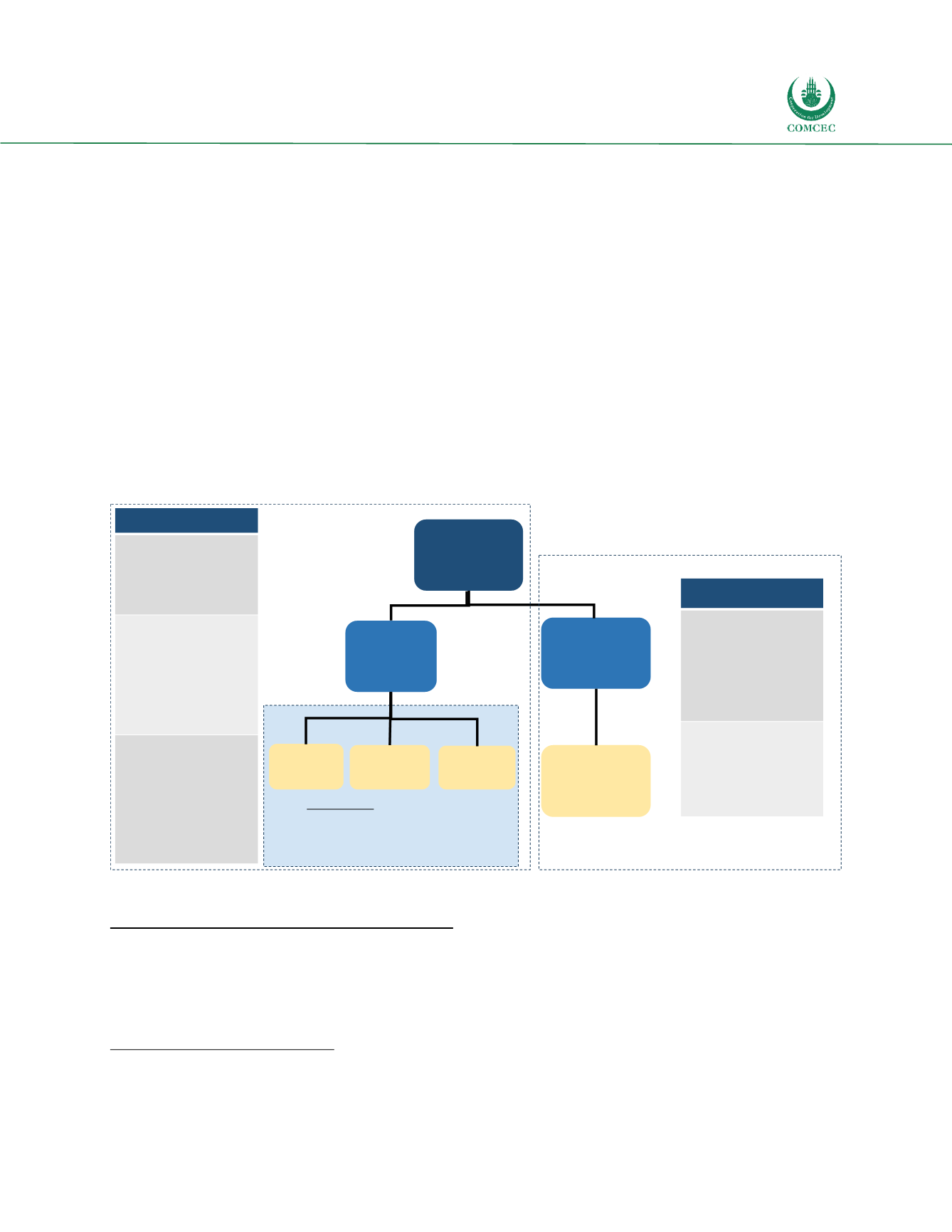

Destination Development and
Institutionalization Strategies
In the OIC Member Countries
131
5.2 Regulatory Value Chain
According to the UNWTO, successful management of a destination is exemplified by cooperation of public-
sector agencies, private sector organizations and the local community.
386
Destination management, when following best practices, is led by a national tourism body that owns the
primary economic objective – increasing a countries international competitiveness, boosting exports and
ensuring a strong policy framework exists to support the tourism industry. Oftentimes, the body represents
the official voice of the country when interacting with international organizations, and when establishing
agreements with international counterparts.
Distinct from the national tourism body, the management office is a national DMO which owns the specific
objective of promoting tourismat a national level and delivering on key economic objectives and outcomes.
387
The DMOs, representing the focus of this report, are where substantial work is done to promote individual
destinations – whether to domestic or international tourists. Separately, a steering committee and industry
associations are essential supporting components to creating a strong tourism-based economy.
Figure 44: Parameter 1: National Oversight Structure
Source: DinarStandard Analysis
Comparing the OIC with best practice examples
In leading non-OIC countries with developed destinations, all the core components of destination
management are clearly evident, with DMOs playing a clear role in developing and managing individual
destinations.
386
United Nations World Tourism Organization.
Destination Management & Quality Programme.
(n.d.). Retrieved from
http://destination.unwto.org/content/conceptual-framework-0387
Bosnic, I. (2014).
Role of Destination Management in Strengthening the Competitiveness of Croation Tourism.
National Tourism
Body
National
Management
Office
National Steering
Committee
DMO
DMO
DMO
Industry
Associations
Role
Convenes all stakeholders
at a national level to
facilitate tourism industry
development
Represents industry
participants from
individual segments of the
value chain – such as
hotels, restaurants,
transportation
Role
Develops tourismstrategy,
accountable to federal
government
Tasked with delivering
overall tourism strategy at
a national level
Provides support to
individual DMOs
Ownership of developing
destinations at a local (part
of a state/region) or
regional (a full state/
region) level
Accountable to regional
government
Core functions:
(1) Product Development
(2) Destination promotion
(3) Resource stewardship and management
(4) Stakeholder engagement
















